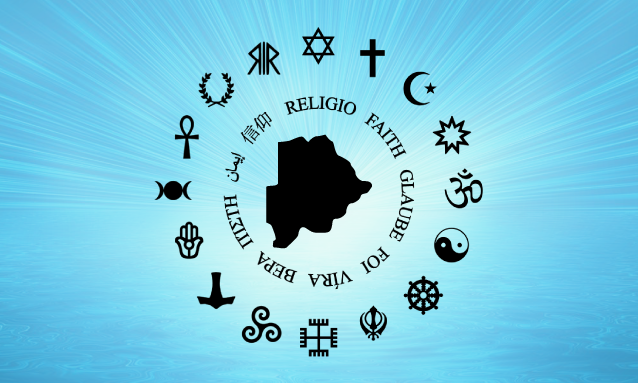
I recently observed with great interest and a heavy heart a very emotionally charged discussion thread on religion in Botswana on Facebook. Reading the comments, it soon became clear to me that some Batswana mistakenly think Botswana is purely Christian, and as such, has no room whatsoever for any other religion other than Christianity.
I found some of the blatantly intolerant views aired beyond disturbing and was moved to bring YourBotswana readers both at home and abroad a piece that focuses on the true facts about religion in Botswana, lest those from outside of Botswana see posts such as the damaging discussion I saw on Facebook.
Furthermore, I feel like all Batswana deserve to know the full truth. While it is obvious to people like me that Botswana is a secular country, clearly, there are many people out there who think it’s purely Christian; the reason for which they can hold some of the most intolerant views I’ve ever had the displeasure of witnessing.
The true figures, according to cia.gov (2011 est.)
- 79.1% of Botswana’s population is Christian
- 4.1% – Badimo (Badimo literally means “ancestors”) – a word for the indigenous African Traditional Religion of Botswana.
- 1.4% constitutes other religions, including;
- Baha’i, Hindu and Muslim
- 15.2% – have no religion
- 0.3% – unspecified
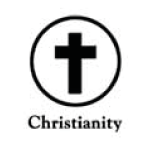 As the figures above show, Christianity dominates religion in Botswana. But by the same token, it is far from being the only religion in Botswana. While the majority of people are Christian, it would be wrong to regard Botswana as a religiously homogeneous society, as the Facebook discussion would have people believe.
As the figures above show, Christianity dominates religion in Botswana. But by the same token, it is far from being the only religion in Botswana. While the majority of people are Christian, it would be wrong to regard Botswana as a religiously homogeneous society, as the Facebook discussion would have people believe.
Given the number of people who are Christian, there are also countless different churches to cater for the masses. The major Christian communities and movements in Botswana are:
- Roman Catholic
- Anglican
- Baptist
- Evangelical
- Lutheran
- Methodist
- United Congregational Church of Southern Africa
- Pentecostal and African Initiated Churches
- Reformed Churches
Then we also have modern Day Christian Churches
Batswana have always been religious people who tend to lean towards Christianity. However, in recent years, we have seen the explosion of what I like to call “new age” churches. It feels like each time I blink, there are a couple of new churches mushrooming all over the place. They are not necessarily my cup of tea, but I do recognise that everyone is entitled to their own choices, be they religious or otherwise.
A very good example of these types of churches is that of the infamous Nigerian, self-proclaimed prophet, T.B Joshua. T.B Joshua is a Christian, televangelist and faith healer, and is very famous and popular across Africa. The man is a force to be reckoned with; has a formidable online presence, boasts over 1 500 000 Facebook fans and has hundreds of YouTube videos, each attracting millions of viewers. According to Forbes, T.B Joshua is the third richest Nigerian pastor.
With these credentials, it is therefore not surprising that many “new age” churches have started mushrooming all over Africa. Many would-be preachers and pastors aspire to be where T.B Joshua is; in terms of his level of fame and wealth. It appears to me that the main focus is not so much religion, spreading the word and worshipping God. In my opinion, these churches are more about business and making money, and fast.
What really irks me about these churches is the fact that they are extremely noisy! The housing estate where we live backs onto a few such churches, and it’s a nightmare for many reasons.
- The church meets 3-4 times a week
- It is very, very noisy! The preacher sounds like he takes on a non-human form, screeching through his sermons. He whips himself and his flock into such frenzy, it’s truly scary. If you didn’t know there was a church service going on, you’d be forgiven for thinking someone was being murdered!
- The flock favourably reciprocates this frightful din by wailing back in answer. The first time I heard it, I almost called the police thinking someone was in trouble.
- Tone-deaf singers and possibly the worst band ever in the history of music, complete the “ensemble”.
- Some of the sermons (ahem, if you can even call them that!) go on till the wee hours, with absolutely no consideration for residential homes in the vicinity.
I know we are all different and have the right to worship how we wish. However, I still believe there’s no reason to be inconsiderate towards those around you. For instance, we have a huge Muslim community where I live; and while they are deeply religious, we never hear anything from them, not a peep!
Other religions in Botswana…
Baha’I Faith
Bahá’ís believe the crucial need facing humanity is to find a unifying vision of the future of society and of the nature and purpose of life. Such a vision unfolds in the writings of Bahá’u’lláh.
The Bahá’í Faith was first established in Botswana in 1955. Since that time, more and more people throughout the country have been finding inspiration and guidance in the teachings of Bahá’u’lláh. Members of the Bahá’í community work together with their neighbours and friends to promote and contribute to the well -being and progress of society. In urban centres and rural villages, in homes and schools, citizens of all backgrounds, classes and ages participate in a dynamic pattern of life. They take part in social and educational activities, which are also spiritual.
Followers of the Bahá’í Faith engage in many community-building activities that address societal needs in both their spiritual and material dimensions in Botswana. Among the principles that inspire them are the oneness of humanity, the need for universal education and the elimination of all forms of prejudice. In Botswana, the Bahá’ís and their growing numbers of friends offer opportunities to study and reflect upon spiritual topics, arrange meetings for communal worship, and provide classes for children and youth, emphasising moral education.
Half a century ago, because of apartheid restrictions, the Baha’is of Botswana had to meet under the cover of darkness. Fifty years ago, attempts to carry on Baha’i activities based on the Faith’s fundamental principle of the oneness of mankind received no official endorsement.
Baha’is can be found in several hundred villages and other localities, the Tlokweng and Block 9 centres in Gaborone being examples. To save money, the believers have begun to build a local Bahá’í Center in Tlokweng, literally with their own hands. A lot of the members chip in and do their bit, demonstrating the church’s strong sense of community.
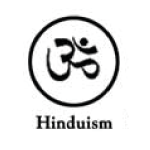 Hinduism
Hinduism
Most Hindus in Botswana are of Indian descent. The 2001 census of Botswana listed approximately 3,000 Hindus. Members of Hindu the community estimate that these figures fall significantly below their true numbers.
The Botswana Hindu Community was first established in the 1960’s with the arrival of few families of the Indian origin from Zimbabwe and Zambia. After Botswana’s independence in 1966, the country required various professionals to accelerate the development of the economy and thus many Hindu professionals and businessmen from India and neighbouring countries came to Botswana, bringing along their Hindu traditions and rituals.
The practice of Hinduism in Botswana is concentrated in and around Gaborone and Selebi-Phikwe.
A strong need for organisation emerged for group celebrations, which led to the formation of the Botswana Hindu Society in July 1979. With the emergence of a few Hindu temples in recent years, it’s clear to see Hinduism in Botswana is growing. As of January 2016, there were five Hindu temples in Botswana. The Botswana Hindu Society acts as the mother body, which always aims to unify its members in a bid to maintain peace and harmony within the Hindu Community.
The following are the major Hindu temples in Botswana that I know of:
- ISKCON (International Society for Krishna Consciousness), Gaborone
- Siva Vishnu Temple, Selebi-Phikwe
- The Hindu Hall, Gaborone
- Sri Balaji Temple, Block 8, Gaborone
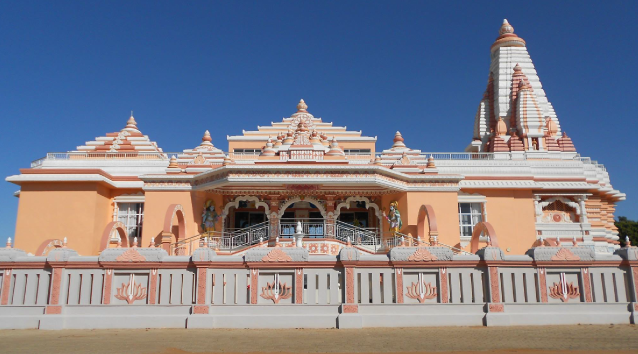
Image source: study-abroad-blog-gaborone-as.ciee.org
IskCon Krishna Balaram Palace – Hindu Temple
The temple, which is about 10-minutes from the CBD, offers a peaceful atmosphere and exquisite architecture. Worshippers are able to join prayers to Lord Krishna from 7 pm daily. You can also meditate at the temple.
Beautiful paintings of the 10 Avatars of the LORD and stunning sculptures adorn the place. Lunch and dinner are offered if pre-arranged. The temple also offers Sunday breakfast, which is said to be very reasonably priced. They offer good vegetarian meals to start the day.
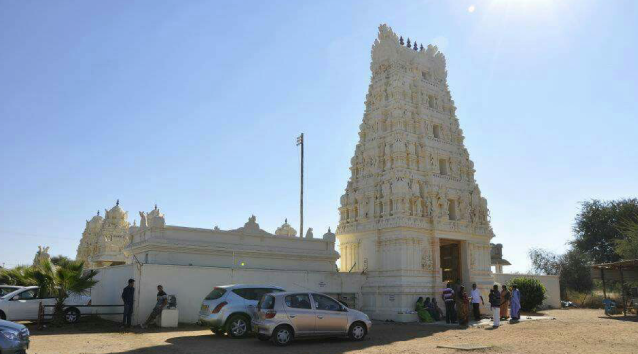
Image source: Pinterest
Sri Balaji Temple
During the year 2000, a few friends toyed with the idea of constructing a Temple for Lord Venkateshwara so that the community could have a dedicated place to worship with the traditional Indian Architecture.
The Trust’s main objective was to build a temple for Lord Venkateshwara along with the provision of a Sanctorum for other deities as well. It took nearly 7 years to bring to life the dream of constructing the temple, which officially opened its doors on the 16th Sep 2007. The temple is constructed in the classical South Indian architectural style, which has been prevalent in southern India for centuries. It is one of its kind in the Southern African region and has become something of a cultural attraction in Gaborone. It’s located at Block 8 in Gaborone West.
The Hindu Hall, Gaborone
The Hindu Hall in Gaborone is situated behind the “Caltex” filling station, in the area adjacent to the Maru-a-Pula traffic lights. All the major Hindu festivals such as the Maha Shivaratri, Rama Navami, Dussehra and Diwali take place in this temple.
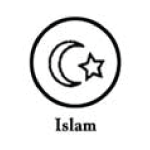 Islam
Islam
According to the 2001 census, there are around 5,000 Muslims in Botswana.
A full – time Coordinator manages the Botswana Muslim Association in Gaborone – time Coordinator. The Centre houses a library that holds a large collection of Islamic books that are continuously revised and updated. The centre also has an assorted collection of DVDs on religious talks, debates and Islamic documentaries. These are screened daily on TV for viewing by those who visit the Centre. The Coordinator is also responsible for conducting organised tours of the mosque. In addition, visitors are given a brief introduction to the Muslim faith and culture, followed by a question and answer session aimed at offering guests the opportunity to hear the authentic message of Islam. The centre works with professors, teachers, students, and organisations to deliver lectures, the focus of which is to raise awareness about the religion.
The Gaborone Da’wah Committee is a regular exhibitor at the Botswana Annual Trade Fair and has in fact won awards for the Best Stall under the Religious Organisations Category. It is during the trade fair that the Committee takes the opportunity to showcase Islam in Botswana and to dispel the myths and misconceptions about Islam and Muslims on a one-on-one basis.
The Centre holds informal discussions every Sunday between 0900 hours and 1230 hours with Sheikh Hassan and other knowledgeable figures, focusing on strengthening the fundamentals of Islam for newly reverted Muslims.

Image source: Botswana Muslim Association
Mosques and other Muslim facilities in Botswana
- Botswana Muslim Association, Gaborone
- Islamic Medical Center, Francistown
Gaborone
- Botswana Muslim Association opposite the University of Botswana and the National Stadium
- Masjid Nur
- Al-Nur Muslim School
Letlhakane
- Letlhakane Mosque
- Letlhakane Muslim Association
Lobatse
- Lobatse Masjid
- Botswana Translation Bureau of Islamic Literature
Maun
- Botswana Muslim Association – from Ngami Toyota on the Gantsi road, West from Hospital Junction, Just before the first right turn.
Molepolole
- Islamic Information Centre
- Islamic English Medium Primary School
Selebi Phikwe
- Selebi Phikwe Muslim Association, Independence Road, Near Travel Inn
Serowe
- Serowe Islamic Center and Mosque, Serowe main mall behind quick stop shop
To conclude, I’m sure we can all agree that although Christianity is the dominant religion in Botswana, it is, in fact, a secular country. Batswana are historically known for being peaceful and tolerant people, and I truly hope that we’ll continue to see this happening going forward. I can only hope that the small number of people who I recently observed spreading hatred of a religious nature on social media remain in the minority. I can only hope that they were just arguing in a vacuum because they don’t know the true facts about religion in Botswana, in which case I also hope they do the Christian thing and start educating themselves in order to become more tolerant towards others who hold different views to theirs and the various religions that exist in Botswana.
Now, where I have a problem is our (some) Christian communities holding the view that they have the license to cause a racket “because everyone, regardless of their beliefs, needs saving”. I don’t agree with the view that the noise that emanates from the churches doesn’t qualify as noise pollution, or that other religions should be denied the right to worship in Botswana. The law of the land recognises that Botswana is a secular country and allows freedom of worship, and promotes the spirit of a Compassionate, Just and Caring Nation. That, in my opinion, should not just be applauded, but also celebrated and upheld.
Are you a Motswana or even a Botswana resident? What’s your religion? We’d be particularly interested in hearing from non-Christians, who we’d urge to share their views about religion in Botswana and how they’ve been received based on their beliefs. Please feel free to comment. We at Botswana love everyone regardless of race, creed, religion, political affiliation or gender J
Reference: bma.org.bw, bahai.org, jamiaislamia.org.bw, revolvy.com

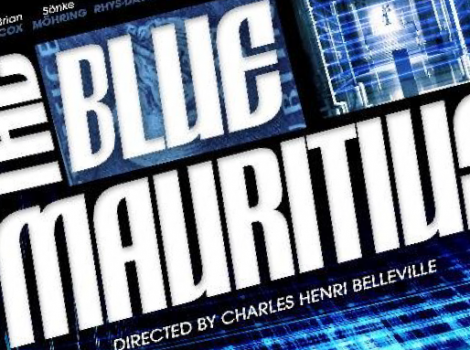
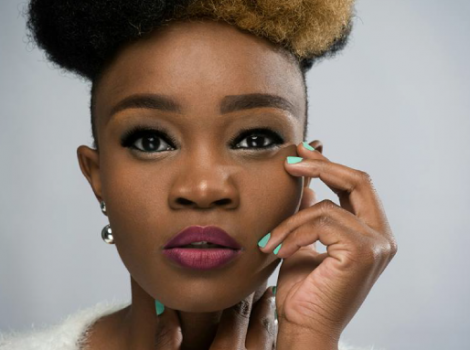
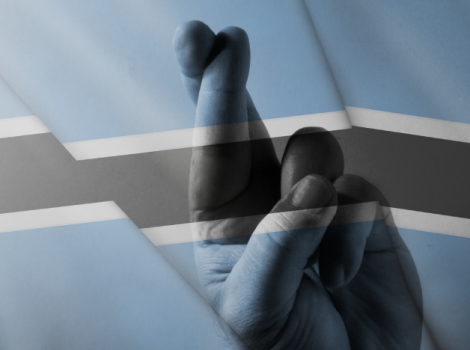
Thank you for the article. Botswana is one of the most tolerant nations and has been for a very long time. I do acknowledge that there are a few people who are intolerant when it comes to religions but I think those are just people who have no knowledge or who are just commenting because Facebook is an open mike platform. At the end of the day we are all human beings and we ought to love one another if we are to all live a comfortable and peaceful life.
Thank you for taking time to share your knowledge. My disappointment is with the lack of mention of the many major developments Christianity has brought to our beloved country like the building of schools, hospitals, and shelters for the vulnerable. Not forgetting many other social intervention programs while you took time to note noble deeds carried out by other religious groups like Baha’i. Also, as much as i agree with you on some disturbing behaviors by a few churches (public nuisances); it seems like you devoted a lot of space to complaining about noise which i thought was a drift from your objective.
I have thoroughly enjoyed reading the article “The Truth about religion in Botswana”. I realize that you deal with serious academic issues unacademically and spiritual matters unspiritually. This compromises the very truth you seek to reveal about religion in Botswana. The statistics you give on religious affiliation in Botswana (79.1% Christianity and 4.1% African Indigenous Religions) ignore the phenomenon of dual religious affiliation, according to which most Batswana are both Christians and traditionalist in their spirituality. For most Africans, Christian conversion means importing the good that Christianity offers, to the African indigenous religion and culture.